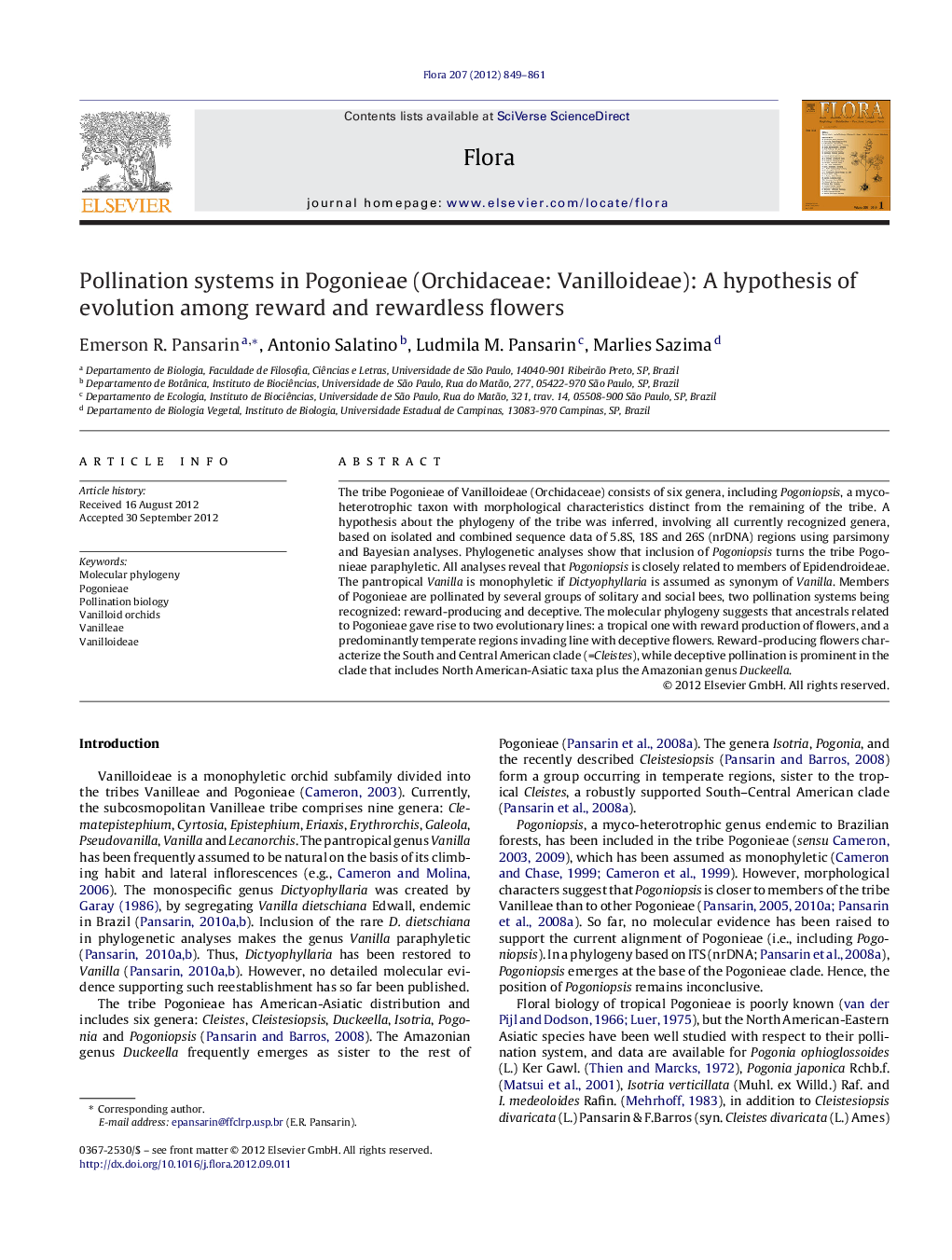| کد مقاله | کد نشریه | سال انتشار | مقاله انگلیسی | نسخه تمام متن |
|---|---|---|---|---|
| 2179570 | 1095062 | 2012 | 13 صفحه PDF | دانلود رایگان |

The tribe Pogonieae of Vanilloideae (Orchidaceae) consists of six genera, including Pogoniopsis, a myco-heterotrophic taxon with morphological characteristics distinct from the remaining of the tribe. A hypothesis about the phylogeny of the tribe was inferred, involving all currently recognized genera, based on isolated and combined sequence data of 5.8S, 18S and 26S (nrDNA) regions using parsimony and Bayesian analyses. Phylogenetic analyses show that inclusion of Pogoniopsis turns the tribe Pogonieae paraphyletic. All analyses reveal that Pogoniopsis is closely related to members of Epidendroideae. The pantropical Vanilla is monophyletic if Dictyophyllaria is assumed as synonym of Vanilla. Members of Pogonieae are pollinated by several groups of solitary and social bees, two pollination systems being recognized: reward-producing and deceptive. The molecular phylogeny suggests that ancestrals related to Pogonieae gave rise to two evolutionary lines: a tropical one with reward production of flowers, and a predominantly temperate regions invading line with deceptive flowers. Reward-producing flowers characterize the South and Central American clade (=Cleistes), while deceptive pollination is prominent in the clade that includes North American-Asiatic taxa plus the Amazonian genus Duckeella.
Journal: Flora - Morphology, Distribution, Functional Ecology of Plants - Volume 207, Issue 12, December 2012, Pages 849–861